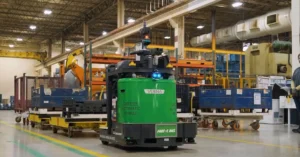Why a High Tech Smart Home is Within Your Reach
It’s been hard to avoid advertisements for products involved with “smart homes” as of late. Although the idea of a smart-home seems like something of a high-cost technological home renovation, many people already own devices that drive home automation. Take the Google Home or Amazon Echo—these popular smart speakers utilize IoT technology to communicate with things like lighting, HVAC, and even ovens and refrigerators. This is what home automation is all about: wireless connectivity, remote access, and energy saving. With the popularity of home automation rising, and the overall costs decreasing, it’s important to know what benefits this brings to homebuilders and homeowners for the future.
One of the biggest concerns when a party is interested in either building or renovating a home into a smart-home is the challenges, both financially and logistically, they might face. While it is true that in its inception, smart devices were comparatively more expensive than their analog counterparts, the stigma has stuck around. In a 2017 survey done by home-automation company Wink, of the 2,177 adults surveyed, 71 percent of respondents indicated they would like the monitoring abilities that came with smart devices, however, only 27 percent had purchased one of these devices.
While upfront costs for homeowners may seem steep, the benefits are reaped from the energy saving over time. Take the hospitality industry, for example. Many modern hotels take advantage of smart thermostats and lighting for their rooms. When a room is vacant, lighting and HVAC can be monitored, controlled, and adjusted until it becomes occupied. Even when a room is occupied, smart thermostats can detect when windows open and will turn off the heat or slightly adjust the temperature of a room while a guest is asleep, making an unnoticeable difference in the room, but saving the hotel an extraordinary amount of money in the long-run. Smart homes are 30 percent cheaper to operate than traditional homes and can save homeowners hundreds with something as simple as installing smart thermostats.
As a homebuilder, return on investment is a priority, but the market for smart homes is growing exponentially. The global smart home industry was valued at $24 billion in 2016 with an estimated CAGR of 14.5 percent. It is expected to reach $54 billion by 2022. Part of this booming industry lies in the changing of consumer needs. While many current homeowners may be skeptical, a Coldwell Banker Real Estate survey showed that more than 60 percent of respondents indicated the importance of smart-home devices being pre-installed in their next home. As a homebuilder in 2019—smart home specialization simply provides a competitive edge.
Security, savings, and accessibility are what make home automation so exciting on both ends of the housing industry. There will be new generations of homeowners and those homeowners will have different needs and different ideals when it comes to finding their next home. Just as environmental sustainability will become a more prominent factor for future homeowners and builders, so will automation. 2019 is sure to be an exciting year for what benefits the next generation of these smart devices will bring.
For the latest news, videos, and podcasts in the AEC Industry, be sure to subscribe to our industry publication.
Follow us on social media for the latest updates in B2B!
Twitter – @AECMKSL
Facebook – facebook.com/marketscale
LinkedIn – linkedin.com/company/marketscale








